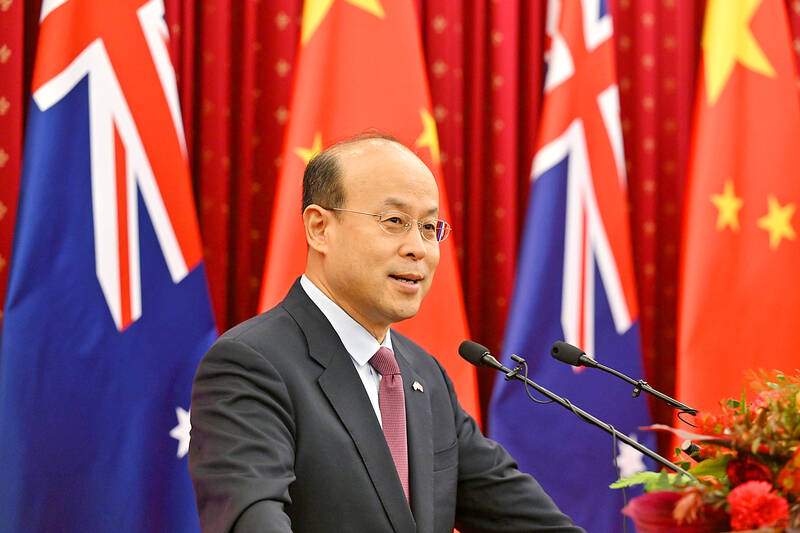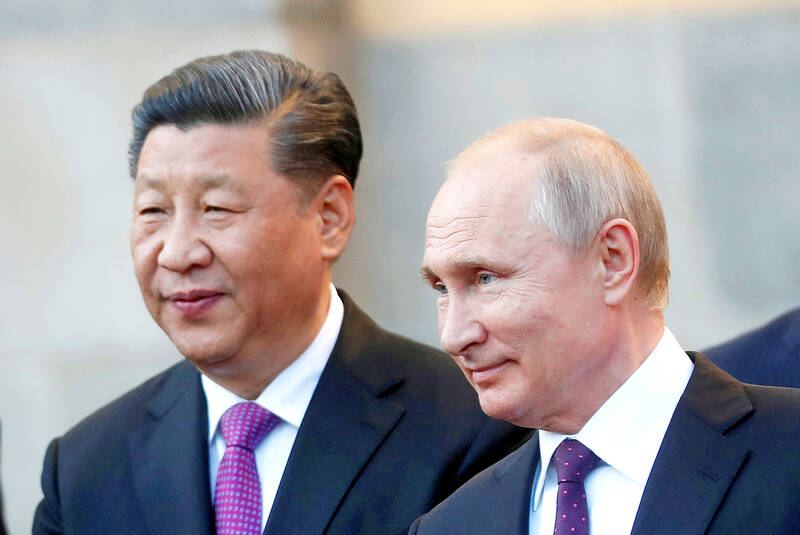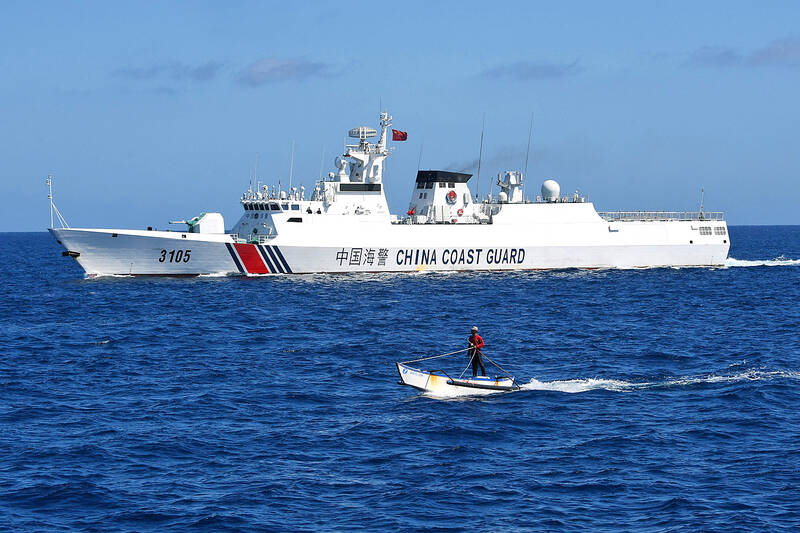When Alexander’s armies conquered cities in the east, they reconfigured their narratives to give their new territories foundational myths, so as to incorporate them into the Greek world. For example, after Tarsus in Cilicia (now Turkey) — later connected with Paul of the New Testament — was conquered, many Greeks moved there. In response, Greek thinkers quickly made up stories of how the city had originally been settled by Greeks from Argos and how its origin was connected to the myths of Zeus and Europa. This helped legitimize the Greeks as locals, not outsiders.
There was a “sudden proliferation” of foundation myths that linked newly acquired towns and cities of Cilicia to Greek mythology, according to Tanja Scheer writing in A Companion to the Hellenistic World, as Alexander extended the Hellenistic world across the East.
As the end neared for the Manchu Empire at the turn of the 20th century, so too did Han Chinese nationalist thinkers begin reconfiguring stories. For instance the Yellow Emperor — a mythical sovereign and culture hero whose legend stretched back to the Warring States period (260BC) — was promoted to become the ancestor of all Chinese.

Photo: EPA-EFE
This was a deliberate anti-Manchu move: many Chinese revolutionaries saw the Manchus as outsiders and barbarians who were not fit to rule over China. The Yellow Emperor was thus reconfigured as a symbol of nationalist resistance. After 1911, however, as the nascent Republic of China (ROC) began to swallow the territories of nearby peoples, the Yellow Emperor’s role shifted again, becoming the ancestor of the Manchus, Mongols, Hui, Han, and Tibetans, who constituted the five “Chinese races.”
While westerners might identify with Alexander’s conquests and the expansion of Greek culture, sympathizing with the political necessity to reframe national narratives to fit new boundaries, where the People’s Republic of China (PRC) is concerned, the tendency is to Orientalize — to treat it as an exotic object so different from our own world that our rules just don’t apply to it.
EXPANDING STATES

Photo:Reuters
This tendency is manifest in media treatment of both Russian and Chinese expansion.
Last month, the Foreign Policy Research Institute (FPRI) published a piece on the thinking of Vladimir Putin titled Putin’s Warped Idea of Russian History by Olga Khvostunova.
“Putin’s rhetoric has become steeped in historical narratives that are as convoluted as they are false, according to Russian historians,” it observed. The writer deliberately and cautiously used the term “rhetoric” since it is not clear, she says, just how much Putin believes what he is saying. Such approaches are common in the western media.

Photo: AFP
The thinking of Xi Jinping (習近平), the dictator of the PRC, is similarly opaque, but western analysts almost never hesitate to interpret what Xi thinks in terms of PRC propaganda. A Daily Express piece out last week blared, “China desperate to trump ‘century of humiliation’ as it aims for ‘world leader power’ role” citing an expert, who said: “For Xi, China is on a journey to overcome the so-called century of humiliation — a period during which Chinese weakness had allowed foreign powers to encroach on its territory and divide its people — to recover its rightful place as a world leading power.”
But “China” was not weak in that period, because it did not exist as a state. It was a holding of the Manchus and their allies the Mongols. Surely, if foreign powers encroaching on China’s territory were humiliating, then the greatest humiliation of all time would be being swallowed by the foreign Manchus. But of course this discourse of humiliation is positioned at Westerners and exists to underpin PRC expansion, meaning that the Manchus simply vanish. It leverages foreign Orientalization of the PRC and awareness of colonialism and racism to exempt itself from criticism.
Hence, explaining Xi’s thinking in terms of the “century of humiliation” is a classic Orientalizing move, plausible only because we treat the PRC as an exotic other. Xi is directing repressive systems of occupation in Tibet and Xinjiang, and internally, smashing and homogenizing the PRC’s immense variety of local languages and cultures. He can look at a map and see that the PRC is almost three times the size of the Ming, the last Chinese empire. Xi knows perfectly well he is engaging in imperial expansion and engaged in repressive occupation of people who are not Chinese and who do not want to part of a Chinese state.
Even the term “China” is itself Orientalist. It presents the PRC as an exotic other instead of just a state in the current system of states, of recent vintage like most of the others. If the term “PRC” were consistently used in the media to describe the empire headquartered in Beijing, it would immediately remind the reader that “China” is an authoritarian state that emerged only recently. The PRC wants writers to use “China” because that links the current state to previous iterations of imperial states in the area, buttressing its use of historical fantasies to support its territorial expansion.
Just before the recent national election here in Taiwan, the Financial Times published a wonderful piece on Taiwan’s history by Kathin Hille called Becoming Taiwan: in China’s shadow, an island asserts its identity. It asserted a fact historians know is true but which seldom appears in public discourse: Taiwan has never been part of any Chinese state. A week later the PRC ambassador to Australia published a fake history-based rebuttal in The Australian that specifically addressed the idea that Taiwan had never been part of China.
LANGUAGE MATTERS
Like Putin’s Russia, which deployed the term “special operation” to describe the war on Ukraine and then enforced that term in the media and public discourse, the PRC constantly polices the discourse around its territorial expansion. Again, like Russia, this shows that PRC leaders are well aware that they are spewing propaganda: not only must it be enforced, but they constantly struggle to keep it straight. Yet western commentators routinely act as if the PRC’s behavior were explained by its own propaganda and not by the desire of imperialist states to expand their borders.
This dichotomy is an old one that I have been following for a couple of decades. In the era of former president Chen Shui-bian (陳水扁), it was routine to read pieces on Europe in which small eastern European nations resisting Russian expansion were lionized as plucky democracies, but Taiwan resisting PRC expansion was dismissed as provoking the PRC. Russia’s invasion of Ukraine ended that. It is almost amusing to contemplate the sudden realization in the media that Taiwan and Eastern Europe were in identical situations: Taiwan commentators had only been explaining it for two decades.
Let’s hope that it won’t take an invasion to get the media to stop treating the PRC like “China.”
Notes from Central Taiwan is a column written by long-term resident Michael Turton, who provides incisive commentary informed by three decades of living in and writing about his adoptive country. The views expressed here are his own.

Towering high above Taiwan’s capital city at 508 meters, Taipei 101 dominates the skyline. The earthquake-proof skyscraper of steel and glass has captured the imagination of professional rock climber Alex Honnold for more than a decade. Tomorrow morning, he will climb it in his signature free solo style — without ropes or protective equipment. And Netflix will broadcast it — live. The event’s announcement has drawn both excitement and trepidation, as well as some concerns over the ethical implications of attempting such a high-risk endeavor on live broadcast. Many have questioned Honnold’s desire to continues his free-solo climbs now that he’s a

As Taiwan’s second most populous city, Taichung looms large in the electoral map. Taiwanese political commentators describe it — along with neighboring Changhua County — as Taiwan’s “swing states” (搖擺州), which is a curious direct borrowing from American election terminology. In the early post-Martial Law era, Taichung was referred to as a “desert of democracy” because while the Democratic Progressive Party (DPP) was winning elections in the north and south, Taichung remained staunchly loyal to the Chinese Nationalist Party (KMT). That changed over time, but in both Changhua and Taichung, the DPP still suffers from a “one-term curse,” with the

Jan. 26 to Feb. 1 Nearly 90 years after it was last recorded, the Basay language was taught in a classroom for the first time in September last year. Over the following three months, students learned its sounds along with the customs and folktales of the Ketagalan people, who once spoke it across northern Taiwan. Although each Ketagalan settlement had its own language, Basay functioned as a common trade language. By the late 19th century, it had largely fallen out of daily use as speakers shifted to Hoklo (commonly known as Taiwanese), surviving only in fragments remembered by the elderly. In

William Liu (劉家君) moved to Kaohsiung from Nantou to live with his boyfriend Reg Hong (洪嘉佑). “In Nantou, people do not support gay rights at all and never even talk about it. Living here made me optimistic and made me realize how much I can express myself,” Liu tells the Taipei Times. Hong and his friend Cony Hsieh (謝昀希) are both active in several LGBT groups and organizations in Kaohsiung. They were among the people behind the city’s 16th Pride event in November last year, which gathered over 35,000 people. Along with others, they clearly see Kaohsiung as the nexus of LGBT rights.